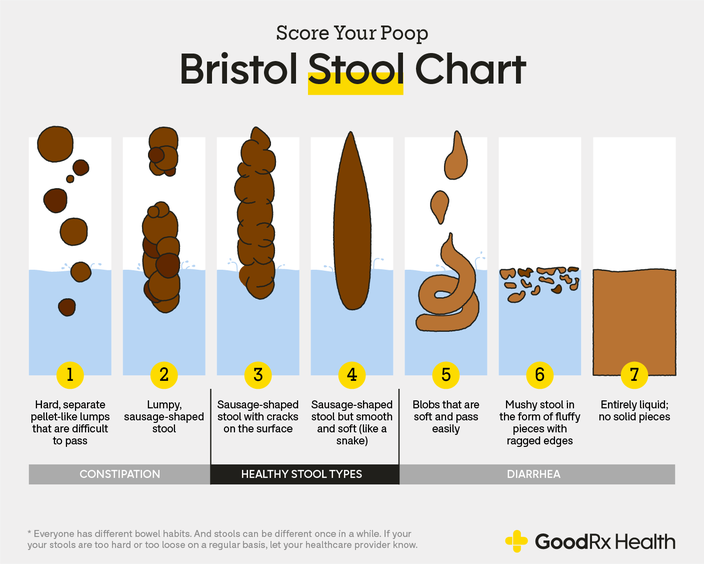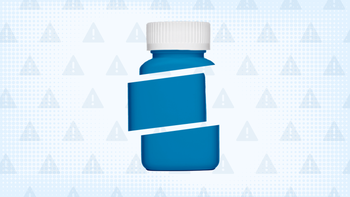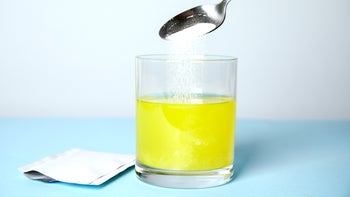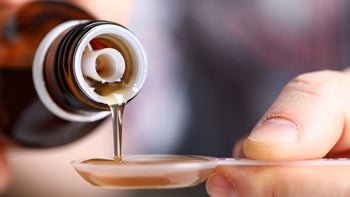
The 5 Best Drinks for Constipation (Plus 2 to Avoid)
Key takeaways:
No drink can make you poop immediately. But some drinks can make it easier to poop when you’re constipated.
Water is the best drink for constipation. It helps keep stool soft so it can easily pass through your gut.
Coffee, tea, probiotic drinks and fruit juices are also good drinks for constipation.
Avoid alcohol, including beer, and milk if you’re constipated. These drinks can make constipation worse.
Table of contents

If you’ve ever struggled with constipation, you may have heard about home remedies like adding fiber to your diet and increasing your physical activity. These changes can make it easier to have regular bowel movements. But did you know that what you drink can also affect the size and consistency of your stool?
Here are the five best things to drink when you’re constipated.

1. Water
Water is the best thing to drink when you’re constipated. Not only can it help ease constipation, it can also keep constipation from coming back.
For stool to be solid yet soft enough to move through your gut, it needs the right amount of water. When there’s not enough water, your poop gets harder and more difficult to pass. Drinking enough water keeps your entire body — including your stool — hydrated. When you’re fully hydrated, you’re less likely to experience constipation.
Search and compare options
Water also makes other constipation remedies work better. For example, more fiber in your diet helps with constipation. But there needs to be enough water to “plump up” the fiber in your stool.
Everyone’s water needs are a bit different. The general rule is eight glasses of water a day, but you may need more or less depending on your weight, activity level, and other medical conditions. Getting enough water throughout the day can help you get rid of constipation for good.
2. Coffee
Coffee is another great drink if you’re constipated. You may have already noticed that coffee can make you poop. That’s because coffee activates the gastrocolic reflex, which triggers stool to move through your colon. It’s likely that the caffeine in coffee plays the biggest role in this process. But studies show that even decaf coffee stimulates movement in your colon — just to a lesser extent than regular coffee.
This effect is strongest first thing in the morning, so consider adding a cup of coffee to your morning routine.
3. Warm drinks
If you’re not a coffee drinker, don’t worry — other warm drinks may also help relieve constipation.
A small study looked at whether drinking warm water helped restore bowel function after surgery. It found that the people who drank warm water after surgery started passing gas sooner than those who didn’t. Tea, warm broth, and warm lemon water can all do the trick.
What you eat matters. Some foods can relieve (and prevent) constipation. Here are our top food picks for constipation relief.
Need help quick? Learn which over-the-counter and prescription medications can relieve constipation fast.
Go beyond constipation relief. Here’s five drinks that can improve your gut health.
Some warm drinks, like green or black tea, also have a small amount of caffeine to help move things along.
4. Fruit juice
Certain fruit juices can also help you poop when you’re constipated. Pectin, a type of soluble fiber, is often added to juice to help improve juice texture. Soluble fibers like pectin soften hard stool.
Some of the best fruit juices for constipation include apple juice, pear juice, and prune juice. These juices contain pectin and are high in sorbitol, a type of sugar alcohol. Sorbitol causes water to move into your colon, which can help relieve constipation.
Try adding a glass of apple, pear, or prune juice to your daily routine. If you’re watching your sugar intake, check the nutrition label for total and added sugars.
5. Probiotic drinks
Probiotic drinks can help support gut health and may also help with constipation. The gut needs healthy bacteria — called probiotics — in order to work properly.
There’s evidence that probiotics can relieve constipation by stimulating movement in your gut and decreasing the time it takes for stool to pass. Fermented drinks like kombucha and kefir are natural sources of probiotics. You can try adding these to your daily routine.
If you don’t like the taste of fermented drinks, try a smoothie made with fiber-rich fruits or vegetables and a probiotic yogurt.
What drinks can make constipation worse?
While some drinks can help relieve constipation, others can make it worse. If you have constipation, here are two drinks to avoid.
Milk
Milk has lactose, a type of sugar found in milk. It can cause constipation if you have lactose intolerance. If you’ve been diagnosed with lactose intolerance and are experiencing constipation, take a break from milk and other lactose products.
Alcohol
Alcohol can affect how quickly food moves through your gut. There’s evidence that drinks with high alcohol concentrations can have the opposite effect. These drinks can slow down bowel movements, leading to constipation. Also, alcoholic drinks — including beer, wine, and spirits — don’t contain any fiber. You should avoid low-fiber foods and drinks if you have constipation.
When should I talk to a doctor about constipation?
Check in with your healthcare team for advice if you’re experiencing constipation on a regular basis. Everyone gets constipated from time to time. And most cases of constipation can be treated with diet changes and over-the-counter (OTC) medications. But sometimes, constipation can be a sign of a more serious condition. If you’re having frequent constipation, it’s best to seek care.
Be sure to contact your healthcare team right away if you have constipation plus other concerning symptoms, such as:
Abdominal pain
Weight loss
Nausea and vomiting
Fever
Blood in your stool or dark black stools
Frequently asked questions
Castor oil is a natural laxative that can relieve constipation. It contains ricinoleic acid, which makes your bowels contract and triggers a bowel movement. Most people need to take between 15 mL and 60 mL (3 tsp to 2 oz) of castor oil for relief. You can swallow it plain or mix it with water or juice.
Pepto-Bismol doesn’t help with constipation. In fact, it can make it worse. Bismuth subsalicylate is the active ingredient in Pepto-Bismol. It stops your gut from adding fluid to your stool. This action helps relieve diarrhea in people with gastroenteritis. But this same action can also trigger constipation in people who don’t have diarrhea.
Epsom salts, made from magnesium sulfate, can help relieve constipation. Most people need to take between 2 tsp and 6 tsp to have a bowel movement. You’ll need to dissolve the Epsom salts in at least 8 oz of water. Adding lemon juice can help improve the taste of the mixture.
The bottom line
What you drink affects the size, shape, and consistency of your stool. Some drinks can help prevent and relieve constipation by stimulating gut movement. The best drinks for constipation are water, coffee or other warm drinks, and prune or pear fruit juice. Milk and alcohol can make constipation worse.
Why trust our experts?


References
Alookaran, J., et al. (2024). Castor oil. StatPearls.
Arce, D. A., et al. (2002). Evaluation of constipation. American Family Physician.
Arnaud, M. J. (2003). Mild dehydration: A risk factor of constipation? European Journal of Clinical Nutrition.
Bae, S. H. (2014). Diets for constipation. Pediatric Gastroenteology, Hepatology & Nutrition.
Bode, C., et al. (1997). Alcohol’s role in gastrointestinal tract disorders. Alcohol Health and Research World.
Çalişkan, N., et al. (2016). The effect of warm water intake on bowel movements in the early postoperative stage of patients having undergone laparoscopic cholecystectomy: A randomized controlled trial. Gastroenterology Nursing.
Grad, S., et al. (2016). The effect of alcohol on gastrointestinal motility. Reviews on Recent Clinical Trials.
He, Y., et al. (2022). Efficacy of probiotic compounds in relieving constipation and their colonization in gut microbiota. Molecules.
Hicks, M. A., et al. (2023). Magnesium sulfate. StatPearls.
Koyama, T., et al. (2022). Prune juice containing sorbitol, pectin, and polyphenol ameliorates subjective complaints and hard feces while normalizing stool in chronic constipation: A randomized placebo-controlled trial. The American Journal of Gastroenterology.
Leszkowicz, J., et al. (2022). Can lactose intolerance be a cause of constipation? A narrative review. Nutrients.
MedlinePlus. (2024). Constipation - self-care.
Rao, S. S., et al. (1998). Is coffee a colonic stimulant? European Journal of Gastroenterology & Hepatology.
ScienceDirect. (n.d.). Bismuth subsalicylate.
Tunaru, S., et al. (2012). Castor oil induces laxation and uterus contraction via ricinoleic acid activating prostaglandin EP3 receptors. Biological Sciences.
Western Family. (2024). Epsom salt- magnesium sulfate granule [package insert]. DailyMed.

























